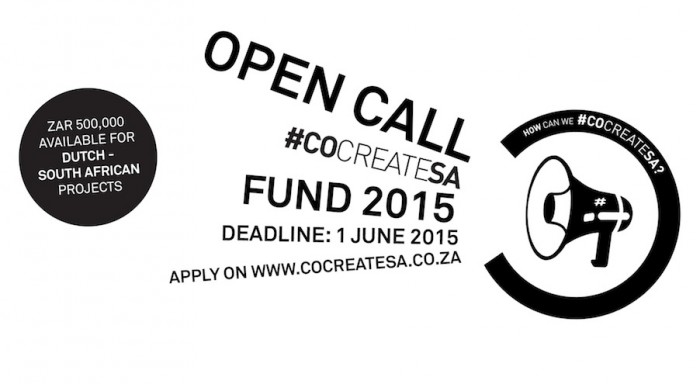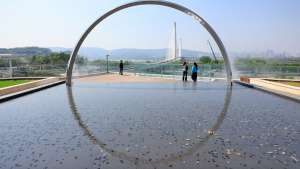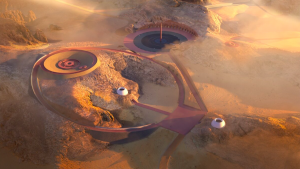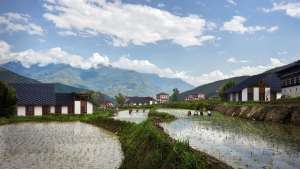
#cocreateSA is hoping to once again inspire and spark innovative thinkers and doers from South Africa and the Netherlands to reach out to each other, share ideas, partner up and create solutions to the local challenges faced by many South Africans.
Earlier this month, Bonnie Horbach, the Consul General of the Netherlands, announced that the new #cocreateSA Fund will invest R500 000 into projects that aim to combine Dutch and South African knowledge for innovative solutions to the challenges of food, energy, life sciences, health, logistics and water in South Africa.
Horbach tells us what the fund is hoping to accomplish and why designers should enter.
How did the #cocreateSA Fund come about?
During 2014, the Consulate General in Cape Town (CG) ran a yearlong programme for the World Design Capital 2014. This programme was premised on design as “the enabler through which we can reimagine our city, to solve its problems and improve the lives of its citizens”. It created an opportunity to showcase the Netherlands’ expertise in urban development, design thinking and innovation as well as crossovers to Dutch key sectors such as water management and serious gaming.
The programme’s main event was a three-week incubator for SA/NL collaboration, Department of Design (DOD), which saw a trade mission of 55 Dutch companies led by Minister of International Trade, HE Ploumen.
Additionally, the CG successfully ran two yearlong projects around urban development known as the Density Syndicate and Play the City. Hence, the #cocreateSA campaign was developed in order to connect all the aforementioned initiatives to our wider mandate of economic diplomacy.
With this being said, the #cocreateSA campaign proved to be a fundamental tool in terms of defining new and modern ways of creating economic opportunities; namely that the Dutch are here to listen, to build long-term partnerships, to collaborate and to co-create solutions premised on local demand.
In 2014, the focus was on connecting individuals, organisations and companies together in order to define and understand local needs. However, 2015 will be the year where impetus will be mobilised so that the tangible results of the #cocreateSA approach will be showcased.
What was the main reason for starting the fund?
To foster long-term, demand-driven partnerships between the Netherlands and South Africa. Sometimes a small incentive will kickstart these partnerships.
More abstractly, I believe that the changing nature of how international trade and diplomacy is carried out in today’s globalised world requires a new approach based on a common ground or level playing field where both sides can relate to one another; that is the foundation of successful economic relations.
There needs to be an understanding between partners about what the issues and opportunities are. Stakeholders each have a buy-in, which ultimately combines resources so that relations are strengthened and all parties reap the benefits.
What do you hope the fund achieves long-term?
The fund incentivises innovators and entrepreneurs to develop new ideas and innovations for local challenges and opportunities. Hopefully in the long term the #cocreateSA fund will become synonymous with sustainable projects, real solutions and solid partnerships. Equally important to me is that #cocreateSA is a new way of thinking. It embodies what I believe modern diplomacy is all about.
Why should both South African and Dutch innovative thinkers apply?
Design is ultimately in everything we do, it is all around us. Design is at the centre of problem-solving and overcoming challenges in the real world. For instance, design plays a fundamental role in how we would find better and more efficient ways of using our electricity supply.
The #cocreateSA fund challenges designers and innovators from both countries to think of new sustainable ways of solving real-world problems. The challenge is bringing the suited thinkers, expertise and skillsets together with those who holistically understand the extent of the problem faced by the citizenry around the same table to find ways of overcoming it. Those who understand and have experience of the problems faced have fundamental input needed by specialists to overcome the problem in a sustained innovative manner.
How did the previous projects fare?
Whether all projects are successful remains to be seen. The projects are currently being executed. The projects selected receive a small grant based on the 50% principle (50% of your own money should also be invested in the project). I believe that sometimes you need this small incentive to showcase new innovations or test new ideas.
That also means that there will be projects that might conclude that they tried but it did not work. What is essential though is that it is demand-driven. It is the South African partner that defines the challenge or opportunity and together with a Dutch partner they co-create solutions.
Will the previous projects continue to be funded? If not, why start a new fund instead of continually supporting the existing nine projects?
No, previous projects will not be funded by virtue of the fact that the innovative projects undertaken by the respective partners need to be sustainable. So after partners come around the table and come up with a divisive idea on how to curb a problem faced, the idea is that the project that grew from the idea needs to become self-sufficient and sustainable and/or find other was to be financed.
How will the winning projects of this year’s #cocreateSA Fund be chosen? What is the sustainability criteria?
All the projects chosen as winners this year are selected by a local committee and will have to undergo scrutiny and review before acquiring the funding. This review will be premised on whether the project embarked on will seek to address a prevalent problem, that the extent of the problem will underwrite the longevity of the project, and that there is sufficient input from local and foreign stakeholders to ensure the sustainability of the project.
Furthermore, projects applying for funding will have to clearly illustrate how funds will be allocated and used in a detailed coherent budget proposal.
Applicants can submit their project proposals for the new #cocreateSA Fund until 1 June 2015. A professional jury will consider all applications and make a final decision on who is granted the #cocreateSA Fund at an awards ceremony on 25 June 2015.






